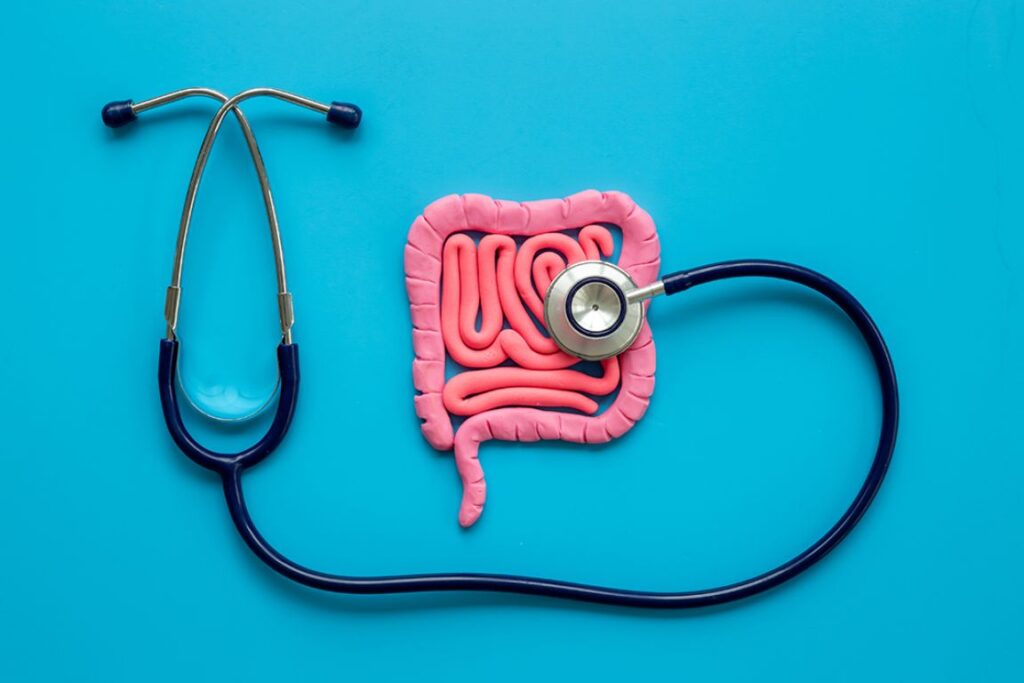MD Insights
Mental Health and the Gut Microbiome
A hot topic lately, here’s an MD’s perspective on how the health of your gut impacts the health of your mind:
First things first, what is the gut microbiome? And how is it connected to the brain? The mind-gut connection refers to the communication that happens constantly, bidirectionally, between the brain and the stomach. Happening across many different crucial bodily systems like the immune system, the central nervous system and the endocrine (hormonal regulation) system, the gut microbiome is believed to play a significant role in regulating this communication between gut and mind.
That term, the gut microbiome, encompasses the ecosystem of bacteria, viruses, and other microorganisms that reside along our gastro-intestinal tract. Here are some fun-facts about the gut and its non-human inhabitants:
- There are 40 trillion bacterial cells in our bodies, mostly congregated in the gut, which exceeds the number of human cells we have by about 10 trillion.
- These bacteria are “good” bacteria and help us break down nutrients we otherwise could not on our own.
- The collective genome of our gut microbiome exceeds over 100x the amount of human DNA we have.
- The gut is responsible for the creation of many of our most important neurotransmitters, including dopamine, GABA, and 90% of our serotonin.

Pretty crazy, right? The vast quantities of research that could be done in this field, given its interconnectedness with so many bodily systems, the sheer quantity of bacteria present, and the wide variety in biomes that exists between individual humans, means the research that has been done represents only a small fraction of the field’s potential. Some of the findings that have been supported consistently however, in animal studies and more recently, in human clinical trials, I explore below.
Here are some conclusions that have been supported by scientific studies, and that continue to be researched extensively:
- The most important influence on the gut microbiome throughout adulthood is diet. The second is exposure to stress.
- Major Depressive Disorder, sleep quality, the severity of depression and insomnia, bipolar disorder, and schizophrenia have all been linked to changes in bacterial composition of the gut.
A recent study was even able to identify 16 different specific bacteria as important predictors of depression. - Certain gastro-intestinal conditions, like Irritable Bowel Syndrome or Celiac Disease, have been associated with an increased likelihood of depression and anxiety.
After learning about this connection and the research surrounding it, my natural follow-up question was: “Well, how do I improve my gut health then?” This question has a thousand complex answers, but there are also some very simple ones. From what we know so far, diet is the greatest determinant of gut-health. This does NOT mean that solely diet can treat the variety of complex conditions mentioned above. Gut health is only one line of research among many when it comes to treating mental illnesses and improving overall mental health. As we learn more, I believe an increasingly multi-disciplinary approach will be used to address and treat the variety of mental health conditions people face on a daily basis, from psychiatry, therapy, and appropriate medication to more traditional lifestyle factors like diet, exercise and mindfulness practices.

- fiber-rich foods like fruit, veggies, whole grains, and nuts
- foods with probiotics like yogurt and kimchi (probiotics are bacteria or yeasts that help restore microbial diversity to the gut as well as enhance nutrient absorption)
- foods with prebiotics like garlic and onions (prebiotics are plant fibers that promote the growth of good bacteria), and
- foods with healthy fats like olive oil, nuts and fish (healthy fats help ease inflammation in the gut)
Funnily enough, this knowledge about diet, gut health, and its effects on our overall well being has, in some ways, been innate human knowledge for centuries. Hippocrates, all the way back in 400 BCE, hypothesized that “all diseases begin in the gut” and emphasized the importance of diet and digestion in maintaining overall health. Sound familiar? Scientists studying the mind-gut connection today are saying much the same thing.
Want to learn about other topics? See below to Ask Dr. Yost.

MD Insights
Dr. James Yost, Chief Medical Officer at CRH Healthcare
An Emory alum with 30 years of healthcare experience and 17 years as a practicing physician, Dr. Yost cares deeply about the patient experience, inside and outside our centers. Starting this year, Dr. Yost will be answering our patients’ most common questions through MD Insights, with practical and trustworthy advice.
Know Before You Go
Feeling less than your best? Patriot Urgent Care is ready to help you Get in. Get out. Get better.
- No appointments or referrals needed.
- Check-in and register online to wait where you want – we’ll text you 20 minutes before your visit.
- Most insurance plans accepted or review our self-pay pricing.
- Please bring a valid ID, form of payment, and list of current medications.
- Please call the center if the patient is under age 2 before visiting.
Please call 911 if you are experiencing a life-threatening condition.
